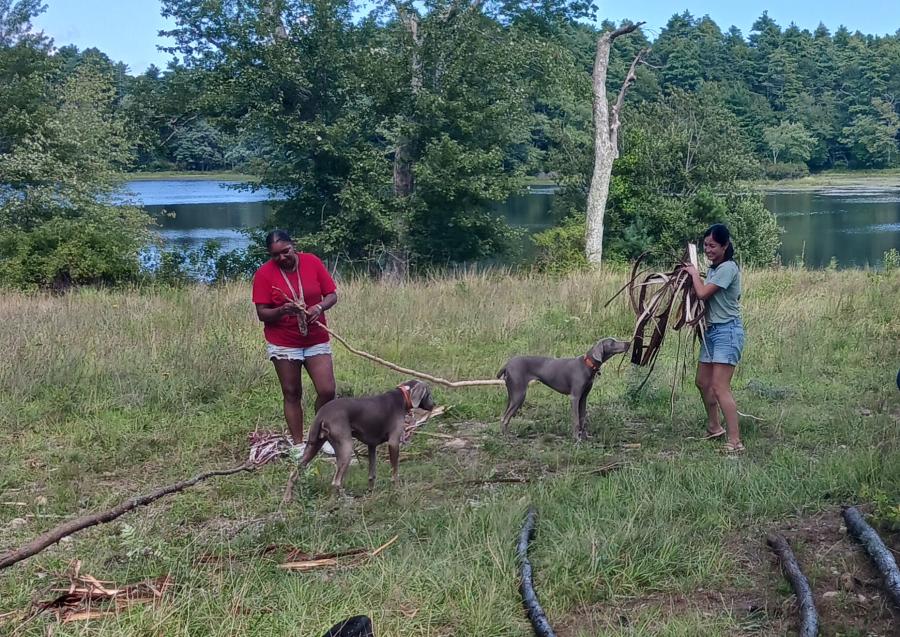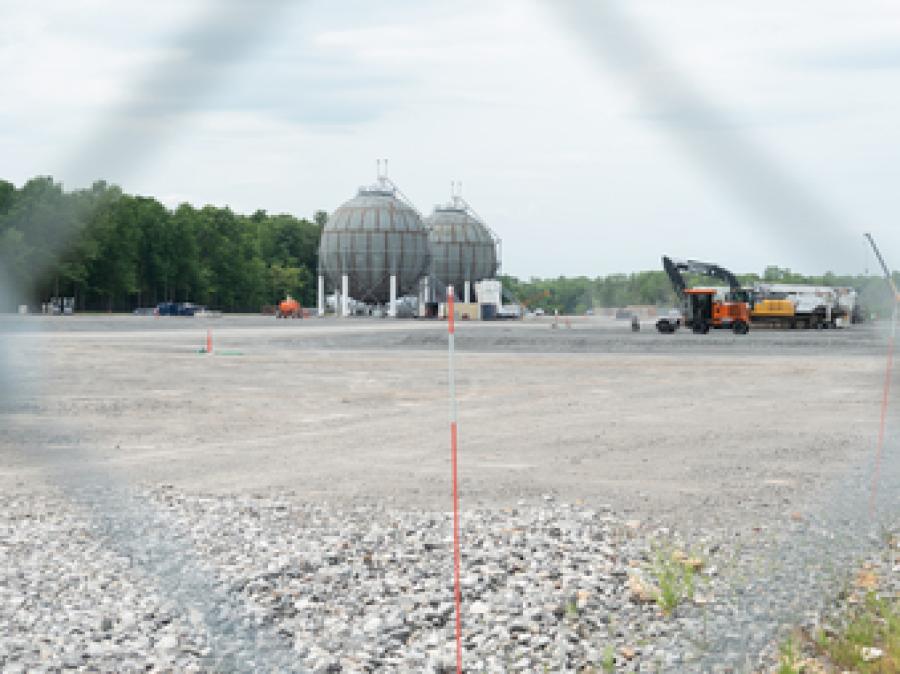Foster care is hard on children anywhere, but it’s especially hard on Native children who are placed with non-Native families—a process that strips them of their identity and heritage. A group of Wabanaki women in Maine have launched their own truth commission to explore the effects and implications of the state’s child welfare system, hoping to heal some of the damage, promote cultural decolonization, and change the way Native children are cared for. In the process, they’ve shown that truth commissions don’t need to be large in scale or initiated by the government, that in fact creating one is an act of healing in itself.
The first peace, which is the most important, is that which comes within the souls of people when they realize their relationship, their oneness, with the universe and all its powers, and when they realize that at the center of the universe dwells Wakan-Taka (the Great Spirit), and that this center is really everywhere, it is within each of us. This is the real peace, and the others are but reflections of this. The second peace is that which is made between two individuals, and the third is that which is made between two nations. But above all you should understand that there can never be peace between nations until there is known that true peace, which, as I have often said, is within the souls of men.
—Black Elk, Oglala Sioux spiritual leader (1863–1950)
Martin was born into a proud Passamaquoddy family. He came from a long line of hard workers, many of whom were forced to leave their community and go into the cities of southern Maine and Massachusetts to find work. Far away from the readily available help of grandmothers, aunts, and uncles, his parents soon struggled with providing adequate, safe care for their children. Martin entered state foster care when he was four and was separated from his brother and sisters. He spent his childhood in foster care, having multiple placements, stays in group homes, and caseworkers. Martin aged out of the foster care system with no connection to his family, his community, or his tribe. The foster care system failed to find permanency for Martin and to keep him close to his third parent: his tribe. When he turned 18, having nowhere to go, he was dropped off at a mental health agency that served Native people.
Several years later, he was asked to speak about his experience to a group of state and tribal child-welfare administrators who were working to bring about lasting change in how child welfare services are delivered to Wabanaki people. Hearing Martin's story brought to life the realization that the foster care system that was intended to work in his best interest in effect severed him from his life before, taking away his family and cultural connections. Martin was left to find his own way by a child welfare system historically unable and often unwilling to work with Native peoples. Martin’s story helped those listening internalize the work they were doing; in his words was the hard truth that brought child welfare issues from one’s head to one’s heart, where the real work needs to happen.
To better understand the experiences of Native children like Martin in Maine’s child welfare system, a truth commission process is underway there. But unlike other official truth commission projects in the Americas that were conceived of and instituted by high-level politicians, this one is being initiated and planned by a group of Indigenous women working in and around the child welfare system, some of whom were taken from our families by the state as children.
Our group has created a vision for a truth commission process and is now in the process of inviting our tribal leadership and the governor of Maine to sign on in an official capacity.
Many truth commissions around the world have set out to incorporate the voices of Indigenous people who have suffered human rights abuses at the hands of government and other political groups. Most of these official truth commissions, however, have also had a nation-building objective, at least in the sense of legitimizing or re-legitimizing the government in power, and some Indigenous rights activists are uncomfortable participating in them for that reason.
Some of the Maine commission’s goals are similar to those of other truth commissions: to document and acknowledge the ways that the state was responsible for harming disproportionate numbers of Native children through its policies and practices; to recommend ways to remedy these injustices; and to challenge the dominant cultural narrative about the state’s treatment of Indigenous children, replacing it with a more accurate narrative that can be incorporated into the ways the people of Maine tell its history.
But one of our overarching goals differs from these other truth commissions: while we use the term “reconciliation” to describe the effort, we see the commission as a piece of a larger effort towards decolonization, undoing the centuries of harms inflicted upon the Wabanaki people.
The tip of an old iceberg
The Wabanaki people have suffered at least a 90-percent population depletion since first contact with Europeans. Today, there are four Wabanaki tribes still in existence: the Passamaquoddy, Penobscot, Maliseet, and Micmac (or Mi’kmaq), living in Maine and Canada. More than 16 other tribes were completely destroyed. Within the remaining four tribes, there are nearly 8,000 tribal members in Maine and other regions alive today.
The Wabanaki were considered by the government of Maine to be wards of the state, and were not allowed the right to vote in national elections until 1954 or in state elections until 1967 (Maine was the last state to do so). It wasn’t until the court cases leading up to the Maine Indian Claims Settlement Act of 1980 that Wabanaki peoples were recognized by the United States as sovereign nations. This historic act was largely an attempt by Wabanaki to reclaim our territory, asserting that two-thirds of the state had been illegally taken by the colonists. The federal government found merit with the claim, and helped broker a settlement between the tribes and the state.
In the 1950s and 1960s, the Bureau of Indian Affairs and the Child Welfare League of America created the Indian Adoption Project, which removed hundreds of Native children from their families and tribes to be adopted by non-Native families. In Maine, Wabanaki children were removed from their homes and communities at a per-capita rate 19 times higher than that of non-Native children. Agencies in charge of child protection often removed children first and asked questions later, if they asked questions at all. Many tribal members lived in fear of losing their children.
In 1978, the U.S. Congress passed the Indian Child Welfare Act, which provided higher standards of protection for the rights of Native children, their families, and their tribal communities. The act says that, “No resource is more vital to the continued existence and integrity of Indian tribes than their children” and that, “Child welfare agencies had failed to recognize the essential tribal relations of Indian people and the culture and social standards prevailing in Indian communities and families.”
The law was a step forward, but it wasn’t necessarily implemented on the ground as it might have been. To address that gap, staff from the Maine Office of Child and Family Services and Wabanaki tribal child-welfare programs in 1999 began a collaboration intended to improve the state workers’ understanding of and compliance with the Indian Child Welfare Act. As we members of that group faced our first task, we were astounded at the mistrust and dysfunction between the state agency and tribal programs. The discomfort and awkwardness stayed with both groups for a long time. Tribal members doubted the state’s commitment to the Child Welfare Act, and state agency folks grappled with their desire to make changes while knowing that they were members of the dominant group responsible for historical oppression. Eventually, the two sides did begin to trust each other, based on our mutual goal of preserving and protecting Wabanaki families, communities, tribes and culture, but there were still challenges. As tribal child-welfare workers, we felt like we were hitting an invisible wall. It became clear that the only way to create lasting change was to have recognition and acknowledgement of past experiences.
After exploring a variety of truth-seeking tools, the workgroup decided to embark on a truth and reconciliation process. One of the things that the workgroup identified as essential was having tribal communities identify our own needs—instead of the historical precedent of the state telling us what we need—so the tribal child-welfare staff and our colleagues took the lead in initiating the process.
One of our group’s first tasks was creating a declaration of intent, which broadly outlined the purpose of the truth commission. This was no easy task. Many hours were spent trying to articulate and understand what needed to be reconciled; many tears were shed as members shared their own experiences as advocates for Native children and families and as Wabanaki citizens affected by racism, oppression, and internalized oppression—the ways in which those who have been victimized by racist systems develop ideas, behaviors, and attitudes that support or collude with that oppression.
It was a cathartic exercise that helped solidify the group, and in February 2010, we were ready to welcome the state’s Office of Child and Family Services staff into the process. But that hard-won declaration of intent was problematic for the state workers, because it contained facts and opinions about genocide, racism, and state child welfare practices. The workgroup, recognizing the necessity of trusting in the entire truth commission process, decided to start over, to create a new declaration of intent collaboratively with the state representatives.
The new declaration outlines the two distinct and equally important purposes of the truth commission process: healing and improved practice. At the core of the process is the value of relationships and the effort of creating and maintaining humanity within those relationships. As Martha Proulx, from the Office of Child and Family Services put it, "The value of this truth and reconciliation [process] is that it is a true partnership that we are undertaking as equals. It is a government-to-government effort to understand what happened, to promote healing for Wabanaki communities, and to improve child welfare practice."
All members of the workgroup talk about bringing our values, beliefs, biases, and unique life experiences into the process. Many of the tribal members say that this work is not just a job—the survival of our community, tribe, and culture are all at stake, and it is easier for us to bring our whole selves into the work. The government folks have had a different experience, and at times have felt conflicted when what was expected of them as employees contrasted with who they wanted to be in relationship with their colleagues on the workgroup.
Members have committed to developing a new type of relationship that represents openness, honesty, and transparency, as well as mutual respect.
Workgroup members believe that it is this commitment that is allowing us to do the painful work of undoing these realities, to engage in a process that we refer to as the decolonization of hearts and minds. It has allowed us to learn about and discuss white privilege, racism, oppression, and internalized oppression. As Mary Bassett, Passamaquoddy tribal elder, says, “Although these constructs are created by humans, they are not humane; they are contradictions to the whole, loving beings that we are. They are ways in which we show our own hurt. It is not until we can work from the heart that we can undo this dynamic.”
Martin, the young man described above, provides an example of what working from the heart to undo this dynamic could look like. Already in this process, he has spoken about his life in the state foster care system, about how he has struggled with his identity, trying to figure out what it means to be Passamaquoddy. There is compassion in his voice as he remembers the many caseworkers that were part of his life. He makes a point to say he doesn’t blame them. He recognizes they were doing their job the best way they knew how. He does say, however, that he has always wanted just one of them to apologize: “A simple ‘sorry’ would make me feel like all I went through wasn’t for nothing. Maybe it would show they learned something from their mistakes”.
Next Steps
Because of the leadership role that Native people have taken in establishing the truth process in Maine, this yet-to-be-formed commission has the potential to transcend some of the fundamental contradictions and compromises made in past truth and reconciliation processes in Central and South America and elsewhere. While the reconciliation-related goals of other truth commissions have largely been about finding ways for Indigenous and non-Indigenous people to live together on the same land without violence, the reconciliation goals in Maine run deeper. For many of the individuals involved in the project, these goals involve developing a new type of relationship between the state and the tribes, as well as deepening a sense of autonomy and self-determination within the Native communities—that idea of being a part of a larger process of decolonization.
But the process is in a critical moment. Although the decolonization goal resonates widely, at least within the tribal communities, it is still unclear what a process of decolonization would look like concretely. Although the tribal leaders have endorsed the process, what role the state will play, if any, is still uncertain.
It is unclear whether or not the new governor will sign on to the declaration. Regardless of whether or not the state officially subscribes to the process, it is unclear how the sharing of these difficult, sometimes painful, and previously silenced stories will affect the tribal communities themselves. And, as with all commissions, one of the greatest challenges is creating and implementing a selection process that will yield strong commissioners capable of taking on the enormous challenge associated with any truth process.
We hope that the international community of transitional justice and Indigenous rights experts will pay attention and offer support to this process as it unfolds.
Esther Attean has played a critical role in the truth commission process as a staff person with the Edmund S. Muskie School of Public Service (the organization currently staffing the convening groups), a member of the Passamaquoddy Tribe, and a resident of the Penobscot Nation community.
Jill Williams was the executive director of the Greensboro Truth and Reconciliation Commission (North Carolina) and is currently the program officer at the Andrus Family Fund, which is supporting truth and reconciliation seeking efforts around the United States, including the process in Maine.



